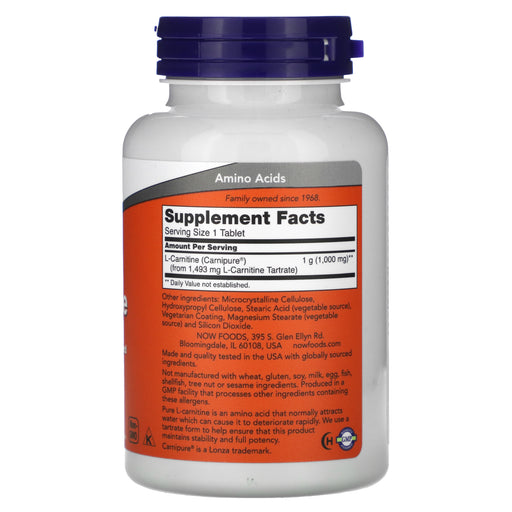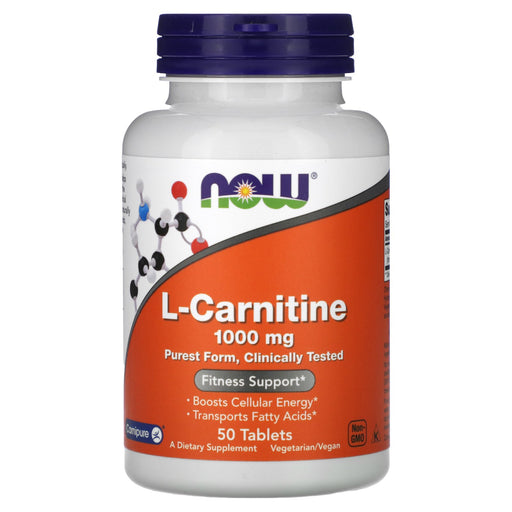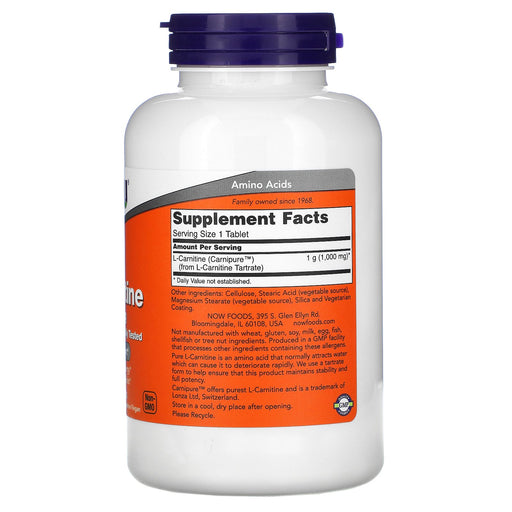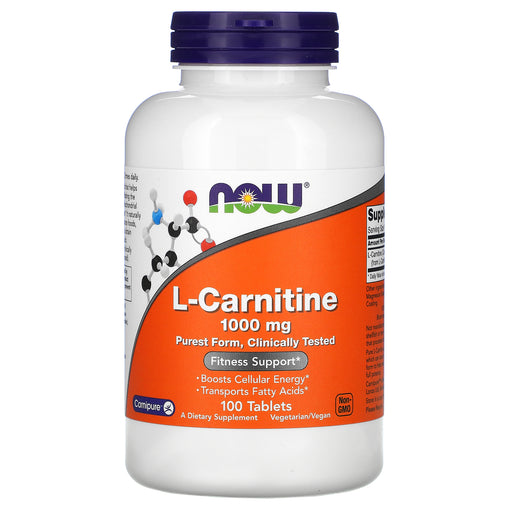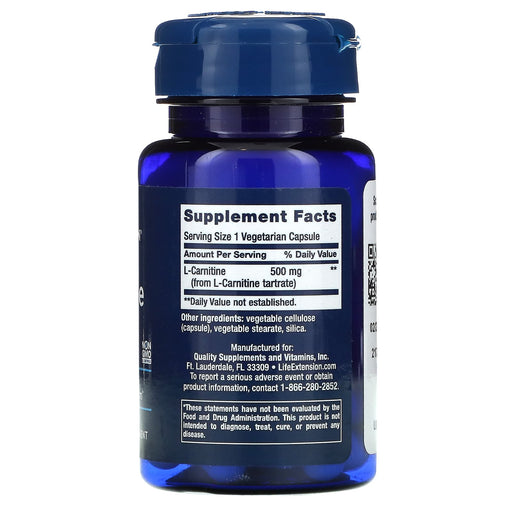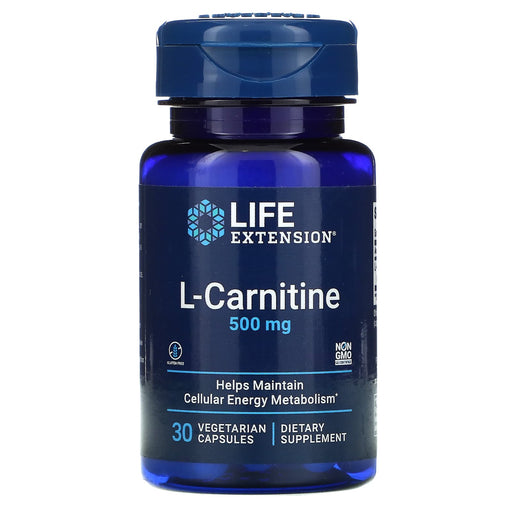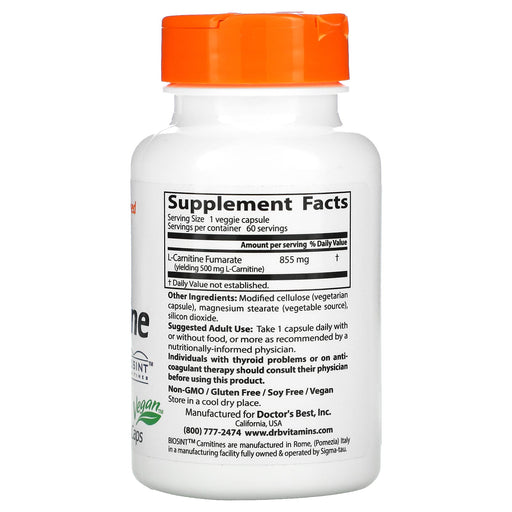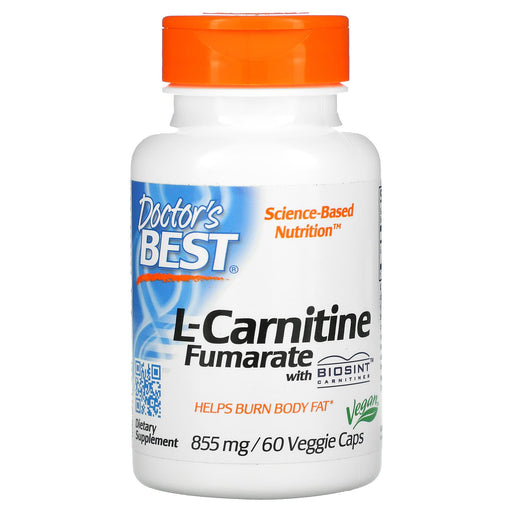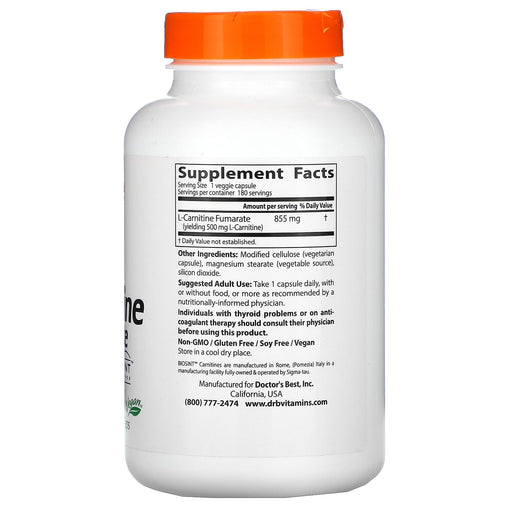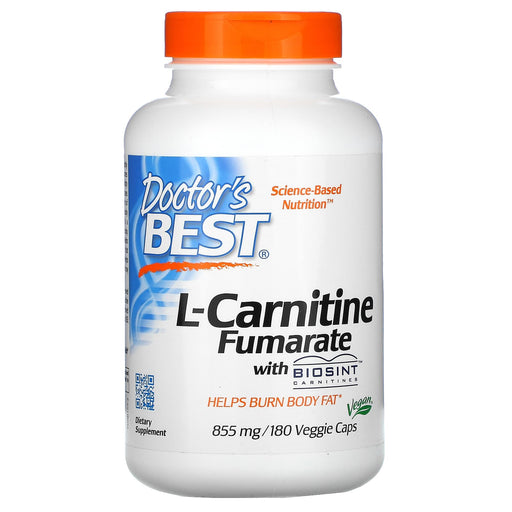
Unleash Your Body's Fat-Burning Potential with L-Carnitine
L-Carnitine is an essential nutrient that plays a crucial role in energy production and metabolism, particularly in the transport of fatty acids into the mitochondria for beta-oxidation. By facilitating the efficient utilization of fat for fuel, L-Carnitine has gained popularity as a supplement for weight management, exercise performance, and overall metabolic health. Incorporating L-Carnitine into your wellness routine can help you tap into your body's full potential for fat-burning, endurance, and vitality.
The Role of L-Carnitine in Energy Metabolism
L-Carnitine's primary function is to act as a shuttle for long-chain fatty acids, transporting them from the cytosol into the mitochondria, where they can be oxidized for energy production. This process, known as beta-oxidation, is essential for the efficient utilization of fat as a fuel source, particularly during extended periods of exercise or fasting. By supporting the body's ability to burn fat for energy, L-Carnitine offers several key benefits:
- Fat Metabolism: L-Carnitine enhances the body's ability to metabolize fat, helping to support healthy body composition and weight management goals.
- Exercise Performance: By promoting the efficient use of fat for fuel, L-Carnitine can help to spare glycogen stores and reduce lactate accumulation, enhancing endurance and delaying fatigue during intense exercise.
- Cardiovascular Health: L-Carnitine has been shown to support healthy heart function by improving energy production in cardiac muscle cells and reducing oxidative stress.
- Brain Function: As the brain relies heavily on fatty acids for energy, L-Carnitine's role in fat metabolism may support cognitive function and brain health.
Beyond Fat Metabolism: The Multifaceted Benefits of L-Carnitine
In addition to its role in energy production and fat metabolism, L-Carnitine has been found to support various other aspects of health and well-being, such as:
- Antioxidant Protection: L-Carnitine has been shown to possess antioxidant properties, helping to protect cells from oxidative stress and damage caused by free radicals.
- Male Fertility: L-Carnitine plays a role in sperm motility and energy production, and supplementation has been found to support healthy sperm parameters and male reproductive function.
- Insulin Sensitivity: Some studies suggest that L-Carnitine may help to improve insulin sensitivity and support healthy blood sugar metabolism, making it a valuable nutrient for those looking to maintain healthy glucose levels.
- Recovery and Muscle Health: L-Carnitine has been found to support muscle recovery and reduce muscle damage and soreness after exercise, promoting overall muscle health and performance.
Choosing the Right L-Carnitine Supplement
When selecting an L-Carnitine supplement, it's essential to choose a high-quality product from a reputable brand. Look for supplements that:
- Provide pure, bioavailable forms of L-Carnitine, such as Acetyl-L-Carnitine (ALCAR) or L-Carnitine Tartrate
- Offer a dosage that aligns with your individual needs and goals, typically ranging from 500mg to 2g per day
- Are manufactured in cGMP-certified facilities to ensure purity, potency, and safety
- Are free from unnecessary additives, fillers, and allergens
As with any new supplement, it's essential to consult with a healthcare professional before starting L-Carnitine, especially if you have a pre-existing health condition or are taking medications.
Related Vitamins and Supplements
While L-Carnitine is a powerful nutrient on its own, certain vitamins and supplements can complement its benefits and support overall health. Some relevant options to consider alongside L-Carnitine include:
- B Vitamins: These water-soluble vitamins, particularly Vitamin B5 (pantothenic acid), play a crucial role in the synthesis and function of L-Carnitine in the body.
- Omega-3 Fatty Acids: These heart-healthy fats support cardiovascular health and may enhance the fat-burning effects of L-Carnitine by promoting healthy insulin sensitivity and metabolic function.
- Coenzyme Q10 (CoQ10): This antioxidant nutrient supports cellular energy production and complements L-Carnitine's role in mitochondrial function and cardiovascular health.
- Alpha-Lipoic Acid (ALA): This powerful antioxidant has been shown to support insulin sensitivity and glucose metabolism, making it a valuable addition to an L-Carnitine supplementation regimen.
Experience the Fat-Burning Power of L-Carnitine
At Health Orchard, we are dedicated to providing our customers with the highest quality L-Carnitine supplements to support fat metabolism, exercise performance, and overall metabolic health. Our carefully curated selection features L-Carnitine products from trusted brands, formulated with pure, bioavailable ingredients for optimal efficacy and safety.
Whether you're looking to support weight management goals, enhance exercise endurance, or promote overall energy and vitality, our L-Carnitine supplement collection has the perfect product to meet your needs.
Witness the transformative potential of L-Carnitine and experience the difference it can make in your journey towards optimal health and performance. Browse our selection today and take the first step towards unleashing your body's full fat-burning potential.
Frequently Asked Questions about L-Carnitine
1. What is L-Carnitine supplement good for?
Carnitine supplements are often used for the following purposes:
- Enhancing exercise performance and recovery
- Supporting weight loss and fat burning
- Improving brain function and cognitive health
- Boosting energy levels
- Supporting cardiovascular health
L-carnitine plays a crucial role in transporting fatty acids into the mitochondria for energy production, making it a popular supplement among athletes and fitness enthusiasts.
2. Is it okay to take L-Carnitine daily?
L-carnitine is generally safe when taken in recommended doses. The typical daily dose ranges from 500-2,000 mg, depending on individual needs and goals. However, long-term use of high doses may cause side effects in some people, such as:
- Digestive issues (nausea, diarrhea, stomach cramps)
- Fishy body odor
- Seizures (rare)
It's essential to consult a healthcare professional before taking L-carnitine daily, especially if you have pre-existing health conditions or are taking medications.
3. Is L-Carnitine good for fat loss?
L-carnitine may help support fat loss by enhancing the body's ability to burn fat for energy. It transports fatty acids into the mitochondria, where they can be oxidized for fuel. Some studies suggest that L-carnitine supplementation, combined with exercise and a healthy diet, may promote weight loss and improve body composition. However, more research is needed to fully understand the effects of L-carnitine on fat loss, and individual results may vary.
4. Is L-Carnitine safe for kidneys?
L-carnitine is generally considered safe for kidney health when taken in recommended doses. In fact, some studies suggest that L-carnitine supplementation may benefit individuals with kidney disease by:
- Reducing oxidative stress and inflammation
- Improving anemia associated with kidney disease
- Enhancing overall kidney function
However, it's crucial to consult a healthcare professional before taking L-carnitine if you have pre-existing kidney issues or are undergoing dialysis treatment.
5. Who cannot take L-Carnitine?
While L-carnitine is generally safe for most people, certain individuals should avoid or use caution when taking carnitine supplements, including:
- Pregnant or breastfeeding women
- People with seizure disorders
- Individuals with hypothyroidism
- Those taking certain medications (e.g., anticoagulants, thyroid hormone)
If you have any pre-existing health conditions or concerns, it's essential to consult a healthcare professional before starting L-carnitine supplementation.
6. What are the negative effects of L-Carnitine?
L-carnitine is generally well-tolerated, but some people may experience negative side effects, especially when taken in high doses. Common side effects include:
- Digestive issues (nausea, diarrhea, stomach cramps)
- Fishy body odor
- Headaches
- Insomnia
Less common side effects may include muscle cramps, seizures (rare), and allergic reactions. If you experience any adverse reactions, discontinue use and consult a healthcare professional.
7. Is L-Carnitine safe for fatty liver?
L-carnitine may be beneficial for individuals with fatty liver disease. Some studies suggest that L-carnitine supplementation can:
- Reduce liver fat accumulation
- Improve liver enzyme levels
- Enhance overall liver function
However, more research is needed to fully understand the effects of L-carnitine on fatty liver disease, and individual results may vary. It's essential to consult a healthcare professional before taking L-carnitine for fatty liver, especially if you have pre-existing liver conditions or are taking medications.


